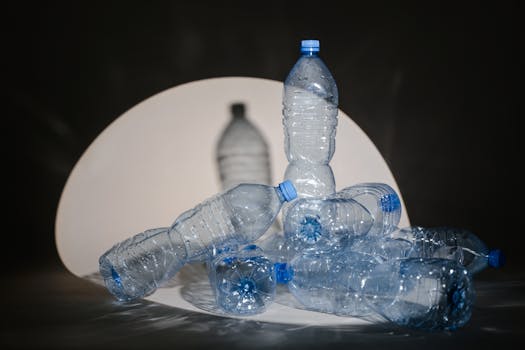happpy.news is an open source project, made with ♥ by reuben armstrong
and powered by this advert ^ from charity.marketing
In a pioneering move, some cities use recycled plastic for roads, cutting waste and emissions. By turning litter into sturdy surfaces, they showcase a circular approach to infrastructure, boosting sustainability while paving greener streets.

In an innovative effort to combat pollution and enhance urban sustainability, several cities worldwide are now incorporating recycled plastic into their road construction. This initiative not only addresses the pressing issue of plastic waste but also offers a durable and eco-friendly alternative to traditional asphalt. As cities turn litter into sturdy surfaces, they are paving the way for a circular economy in infrastructure.
The concept of using recycled plastic for roads is gaining traction as municipalities look for solutions to manage the vast amounts of plastic waste generated daily. According to recent studies, over 300 million tons of plastic are produced globally each year, with a significant portion ending up in landfills or the ocean. By integrating this waste into road materials, cities can significantly reduce their environmental footprint while improving infrastructure.
One of the most notable examples of this initiative can be found in the Netherlands, where a company called PlasticRoad has developed a modular road system made entirely from recycled plastic. These roads are designed to withstand heavy traffic and extreme weather conditions, offering a lifespan of up to 50 years. The PlasticRoad system not only reuses plastic waste but also provides space for utilities such as drainage and electrical conduits, showcasing the innovative potential of this approach.
Cities in the United States, such as San Francisco and Los Angeles, are also exploring similar projects. San Francisco has introduced a pilot program where recycled plastic is mixed with traditional asphalt for road repairs and new construction. This initiative has been met with enthusiasm by residents and environmentalists alike, who see it as a crucial step towards achieving zero waste goals.
The environmental benefits of using recycled plastic in road construction are substantial. For one, it reduces the need for virgin materials, thereby cutting down on emissions associated with the extraction and processing of raw materials. Additionally, the production of asphalt is energy-intensive; by integrating recycled plastic, cities can lower their overall energy consumption and carbon footprint.
Moreover, these recycled plastic roads are less prone to cracking and require less maintenance than traditional asphalt, which can lead to long-term cost savings for municipalities. The durability of these roads means fewer repairs and less frequent need for resurfacing, which ultimately translates into reduced disruption for residents and commuters.
In addition to the practical advantages, the adoption of recycled plastic roads sends a powerful message about sustainability and innovation. It encourages communities to rethink their approach to waste management and highlights the potential of circular economy principles in everyday life. By transforming waste into valuable infrastructure, cities can inspire other regions to adopt similar practices, promoting a global movement towards sustainability.
As more cities implement these pioneering solutions, the hope is that the positive impact on the environment will resonate beyond just roadways. By championing sustainable practices, cities can foster a culture of environmental stewardship and inspire residents to engage in eco-friendly behaviors.
In conclusion, the shift towards recycled plastic roads represents a significant step forward in urban sustainability efforts. By turning plastic waste into resilient infrastructure, cities are not only reducing pollution but also paving the way for a greener future. As this trend continues to grow, it offers a hopeful vision of how innovation and sustainability can come together to create a better world for generations to come.
Source: Science Direct